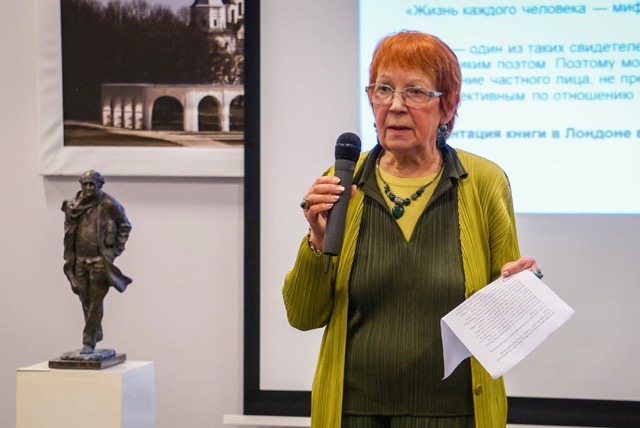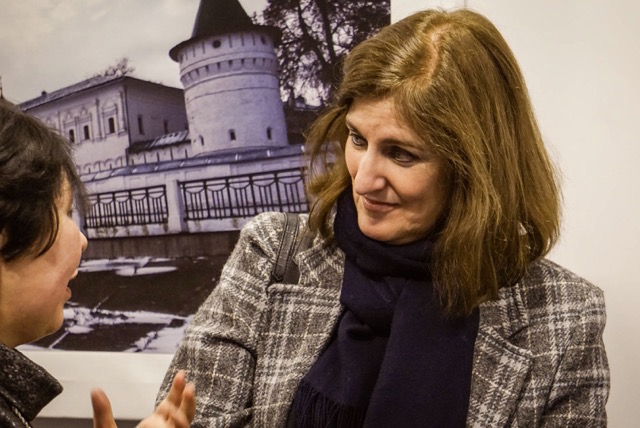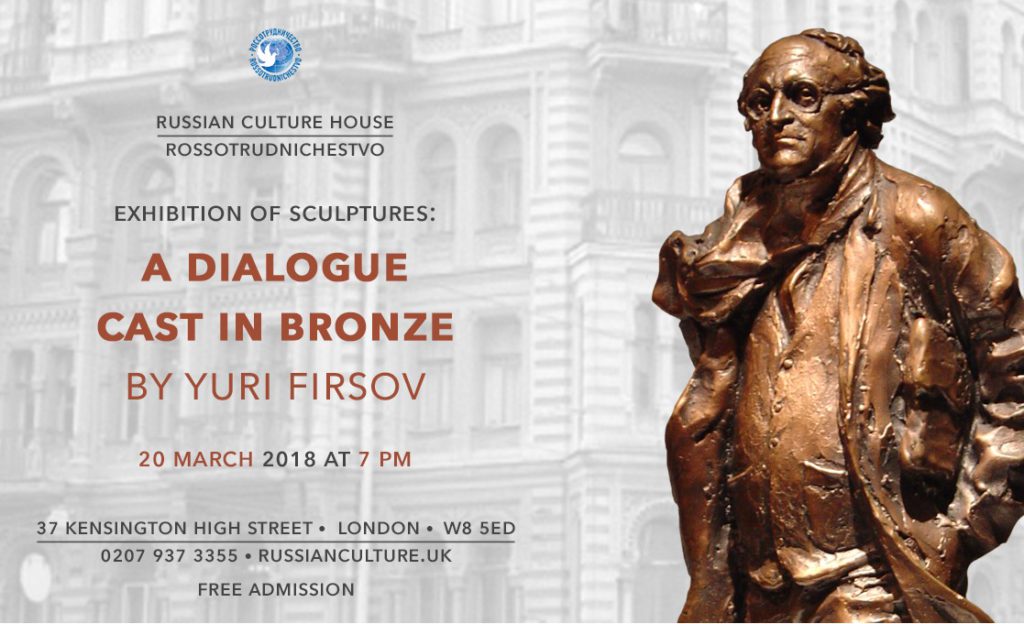
Men attended, but only women and guest author lined up for photographer Jakob Margolis.
Valentina Polukhina was one of the women being honored during Mark Yakovlev‘s presentation of his book Joseph Brodsky and The Fate of Three Women. Valentina spoke at the Russian Cultural Center on Kensington High Street in London. She is one of the world’s leading scholars of the Russian Nobel poet Joseph Brodsky.

She proved it.
During her talk, she retold a story that she told me sometime earlier, so I’ll share it here. During her early days with the poet, she told him he was a second Pushkin. Not the first time he had been compared with the ur-Russian poet of all time, the author of the justly renowned Eugene Onegin.
But his reaction was skeptical. “Prove it!” he said.
Her response: to interview his fellow Russian poets, writers, and other colleagues. That was volume 1 of the remarkably insightful Brodsky Through the Eyes of His Contemporaries. Then she followed up by interviewing his colleagues in other countries. That was volume 2. Then she interviewed still others for a third volume. (The series has been slightly abbreviated for the two-volume English-language series by Academic Studies Press.)
 Humble Moi also spoke at the Russian Cultural Centre that evening, but my topic was George L. Kline, the pivotal scholar who smuggled his poems out of the Soviet Union and translated his Selected Poems. My words:
Humble Moi also spoke at the Russian Cultural Centre that evening, but my topic was George L. Kline, the pivotal scholar who smuggled his poems out of the Soviet Union and translated his Selected Poems. My words:
“George Kline was a modest and retiring man, but on occasion he could be as forthright and adamant as Nobel poet Joseph Brodsky himself. In a 1994 letter, he wrote: ‘Akhamatova discovered Brodsky for Russia, but I discovered him for the West.’ And in 1987, ‘I was the first in the West to recognize him as a major poet, and the first to translate his work in extenso.’
“And it was true. What’s lesser known is how greatly this quiet Bryn Mawr professor supported scholars around the world who were working with Russian poetry and Brodsky in particular.
“Though we had never met face to face, George Kline was a regular presence in my life. My publication fifteen years ago of Joseph Brodsky: Conversations was my carte d’entree to this world, decades after I had studied with Brodsky at the University of Michigan. Some months after publication George sent me a multi-page letter noting the errata in my text. I later learned that anyone in the world who wrote or published something about Joseph Brodsky could expect such a letter, delineating the errors in the text. He did the same for his own works, carefully setting out the mistakes.

Answering a question or two. (Photo: Jakob Margolis)
“He was thorough, neutral, scholarly. Nevertheless, I persisted, and I don’t think I could have made whatever scholarly contribution I have in the Brodsky world without George’s encouragement, advice, and occasional recommendation. And in 2012, we decided to create a long written record of his work with Brodsky, in the form of a conversation.
“I didn’t know then what I would learn. That he had been a World War II pilot, for which he was awarded the Distinguished Flying Cross. That he was the founder and acknowledged dean of the Russian philosophy in the United States as a scholarly specialty. And that he’d translated Akhmatova, Tsvetaeva, Pasternak, Tomas Venclova, and others. Even so, he’s mostly he’s remembered today as the man who brought Joseph Brodsky into English, and the poems into America itself by bootlegging manuscripts out of the Soviet Union.”
Yes, one person asked me, but did George translate the poet to replicate the meter and rhyme of the original? Yes, I said, he did. “But did he succeed?” queried a second. “Read for yourself! ‘The Butterfly’ is a masterpiece!”
Oh, and the bronze sculpture of the poet in the corner next to Valentina? It was also honored. But then, Yuri Firsov‘s creation had an event of its own, tonight:

Tags: "joseph brodsky", Alexander Pushkin', Valentina Polukhina, Yuri Firsov


March 20th, 2018 at 12:13 pm
Thank you so much, Cynthia. I never cease to learn a great deal from you–about language, poetry, The Great Man Himself, and now, George Kline, whose translations I’d read until the book fell apart, long before JB and I ever met. So glad you are in London and hope it is an immense joy.